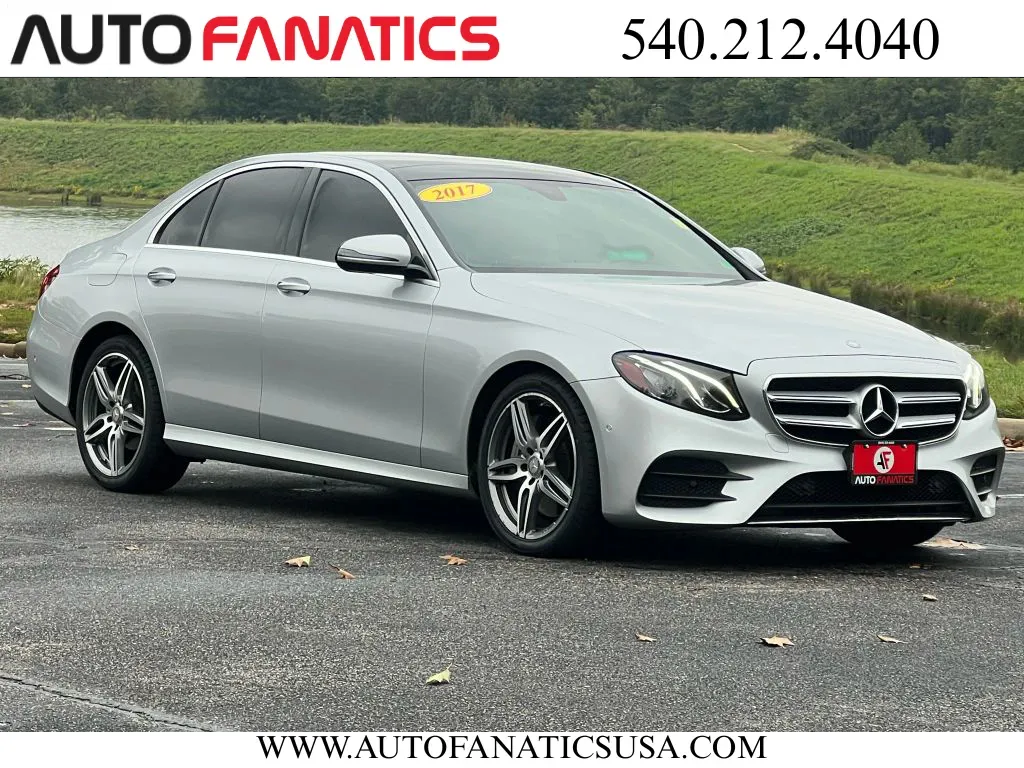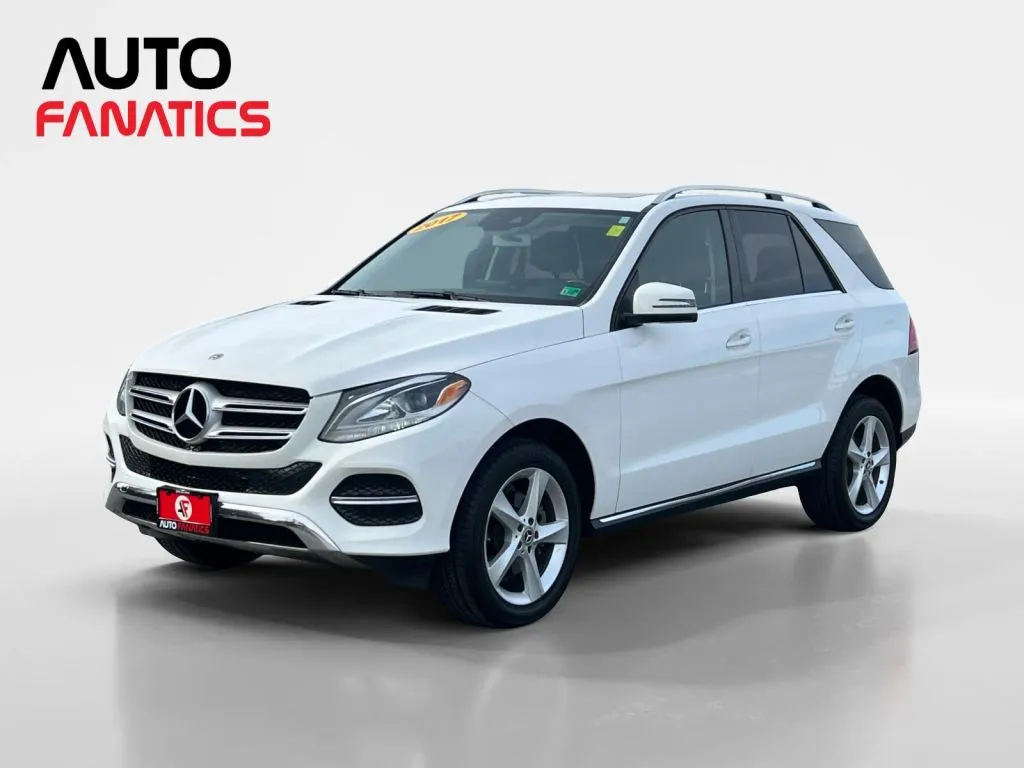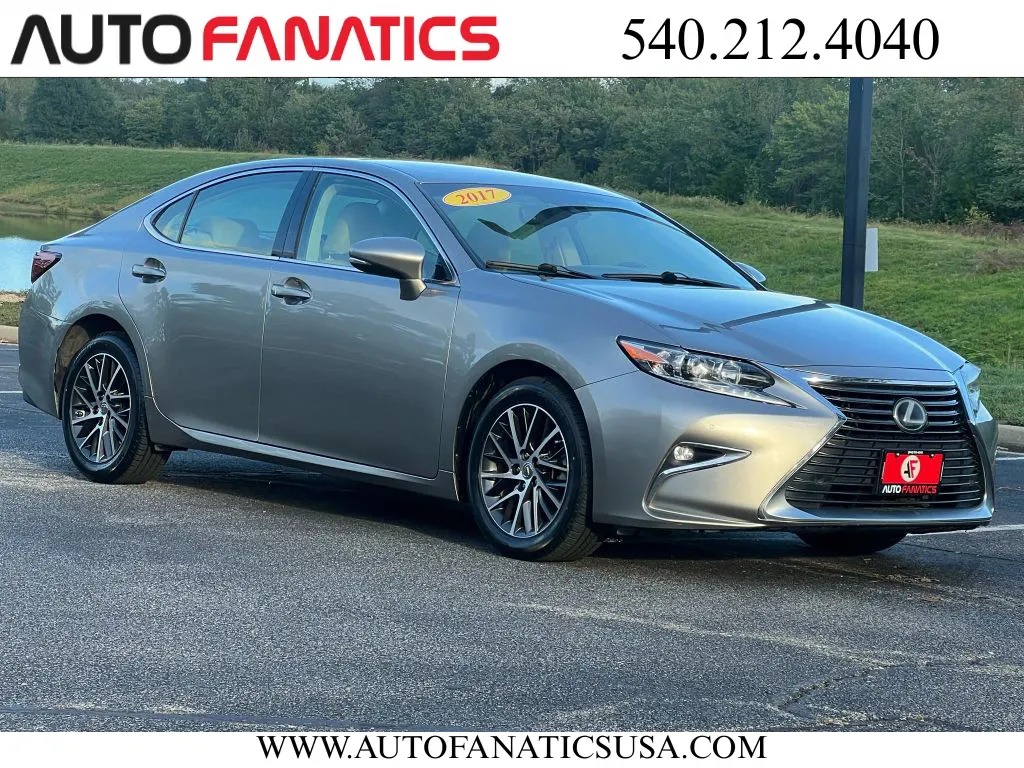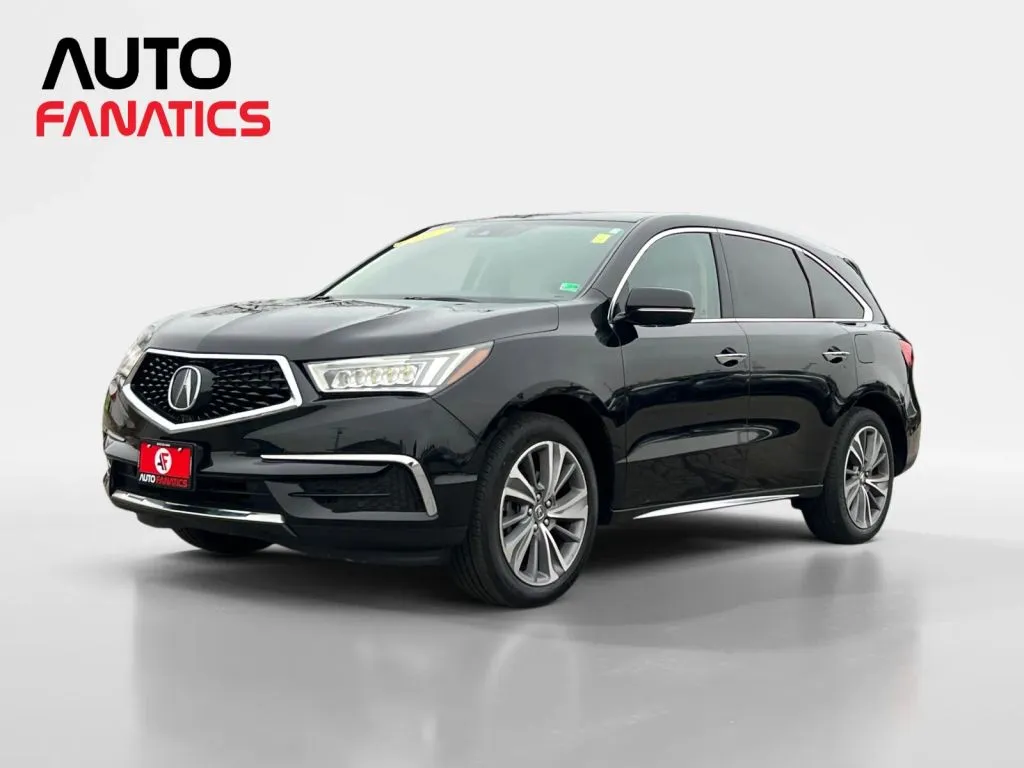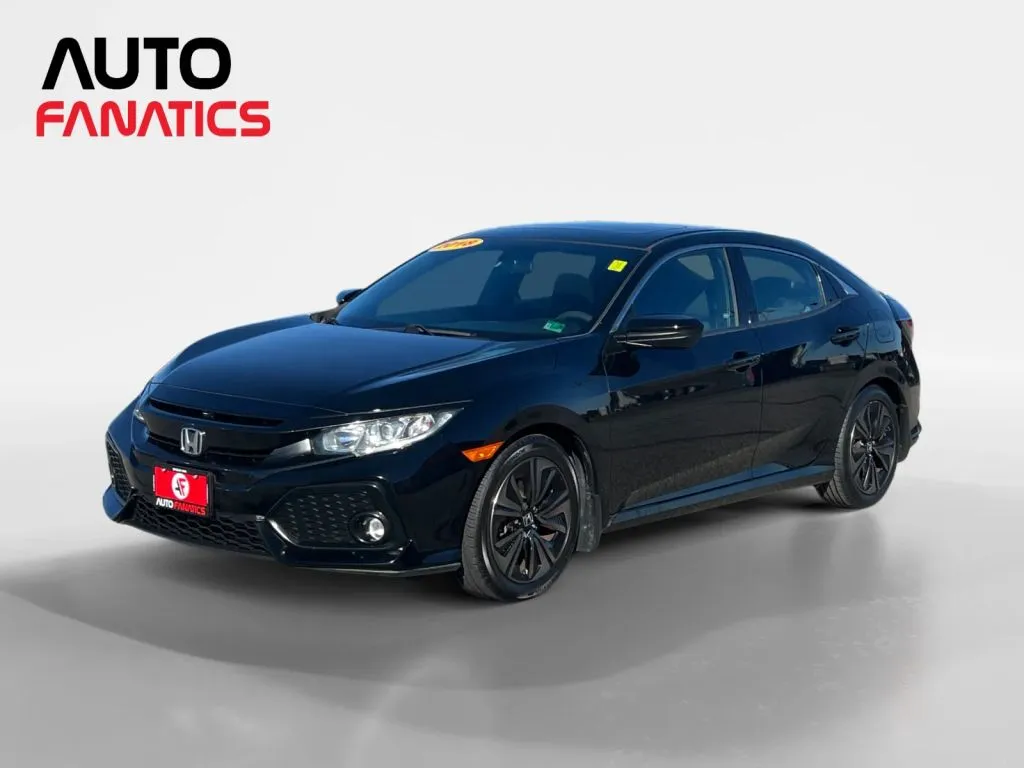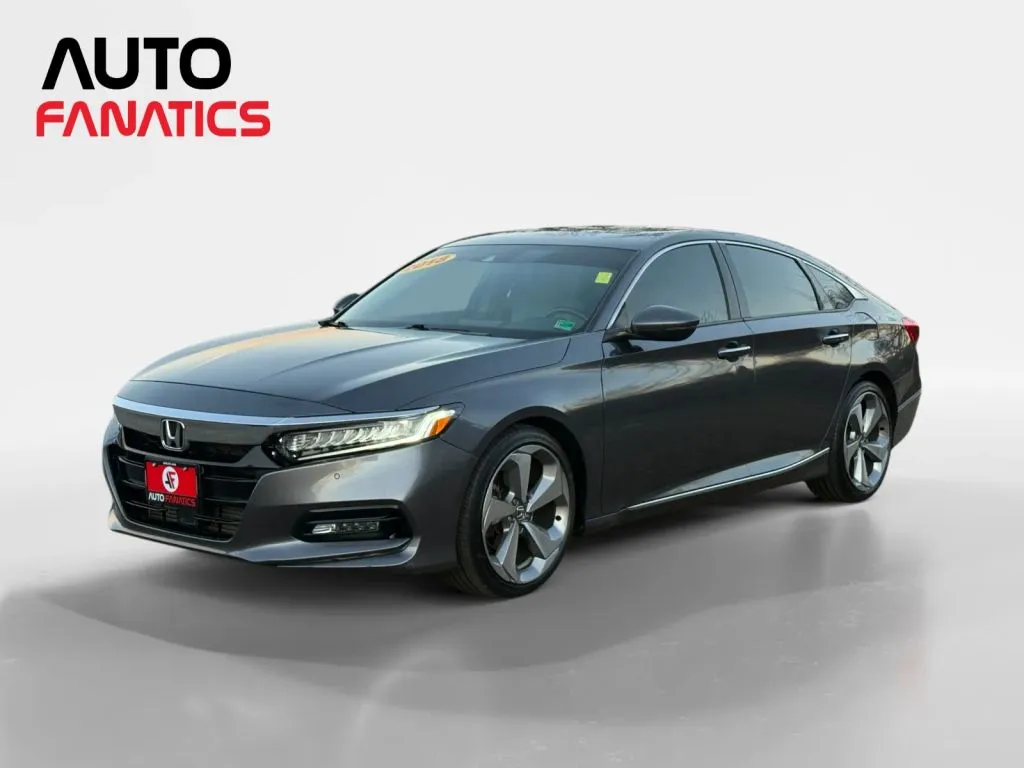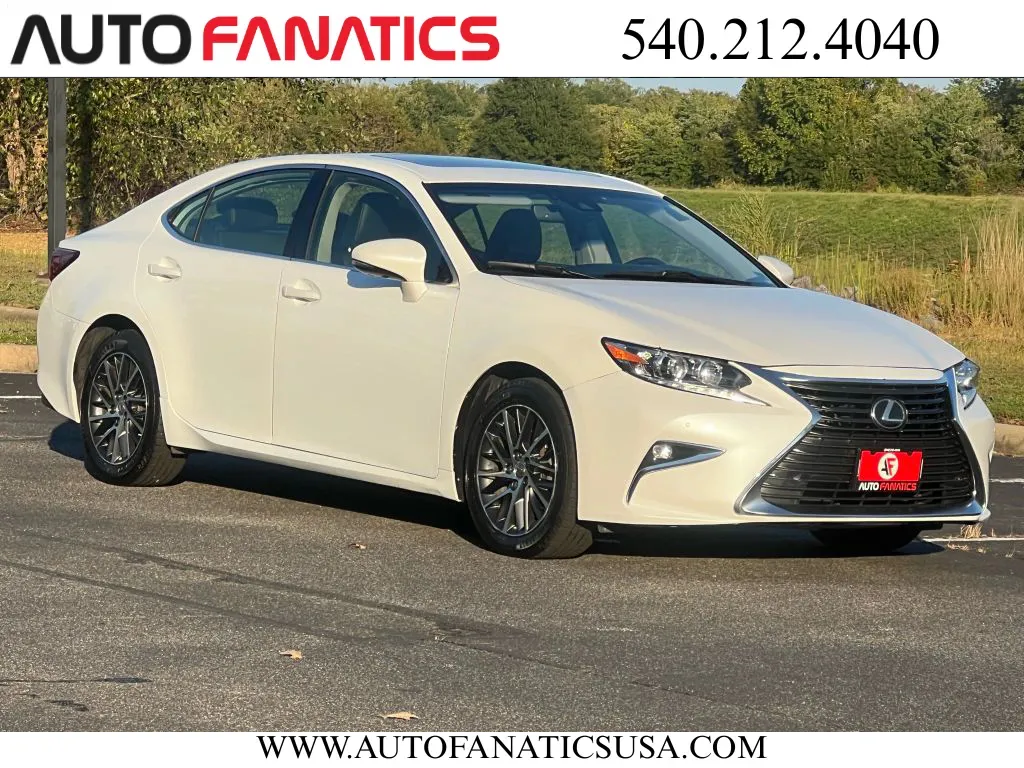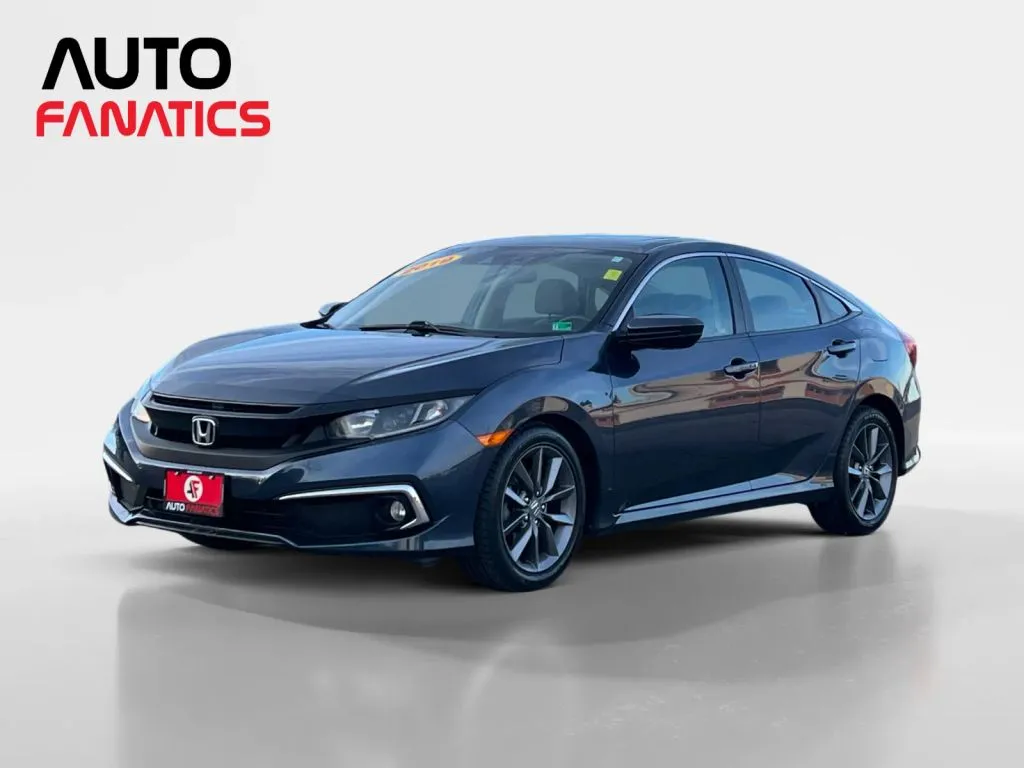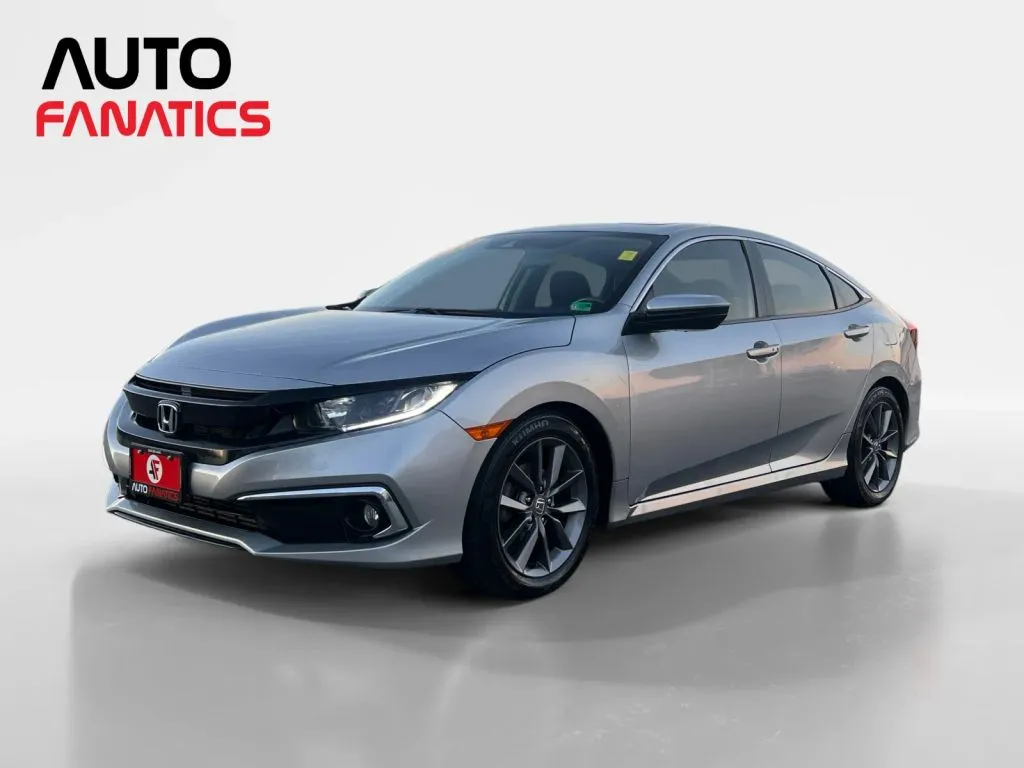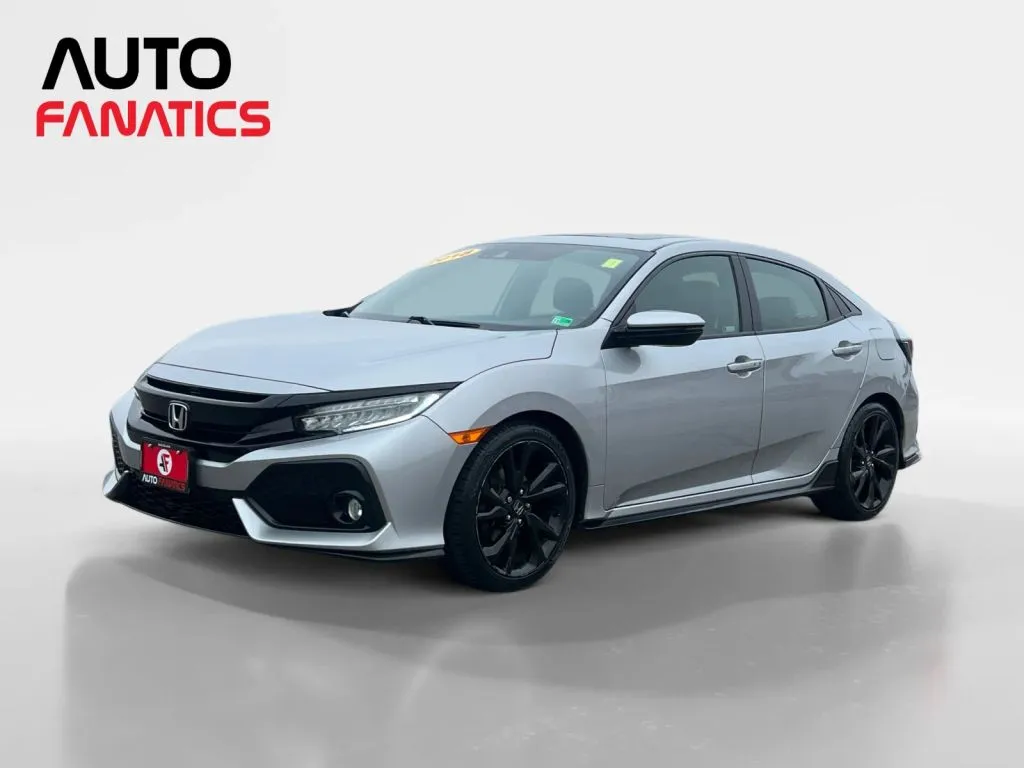How to Find the Best Used Car Deals
Table of Contents
How to Find the Best Used Car Deals
.webp)
The hunt for the perfect used car often starts with a simple question: Where do I even begin? With countless online marketplaces, local dealerships, and private sellers, the options can be paralyzing. You need a strategy to sort through it all effectively. This guide provides that strategy. We’ll break down the pros and cons of each place to shop and give you a pre-purchase checklist to vet any vehicle like a pro. We want to empower you with the right information so you can easily spot the best used car deals and avoid the potential pitfalls along the way.
Key Takeaways
- Do your homework on every vehicle: Your best defense against a bad deal is information. Always check the fair market value, review the vehicle history report for red flags, and invest in a pre-purchase inspection from a mechanic you trust.
- Secure your financing first: Walking in with a pre-approved loan gives you a clear budget and strengthens your negotiating position. It separates the car price from the financing discussion, allowing you to focus on getting a fair deal on the vehicle itself.
- Choose the right seller, not just the right time: While end-of-year sales can be beneficial, a positive buying experience depends on the seller. Look for a dealership known for transparency and a no-pressure approach to guarantee you're treated fairly.
Where to Find the Best Used Car Deals
Finding the right used car starts with knowing where to look. From local dealerships that offer a personal touch to massive online marketplaces, you have more options than ever. Each path has its own perks, whether you’re looking for a certified vehicle with a warranty or a great deal from a private seller. Let’s walk through the best places to start your search so you can find a car you love at a price that fits your budget.
Why Start with Auto Fanatics?
When you want a car-buying experience that’s transparent and stress-free, starting local is your best bet. Here at Auto Fanatics, we’ve built our reputation on a no-pressure approach that puts you first. We offer a wide selection of meticulously inspected used cars, trucks, and SUVs right here in Fredericksburg. Because we’re part of your community, we’re focused on building lasting relationships, not just making a quick sale. Our process is straightforward, our team is here to help, and our 450+ positive customer reviews show our commitment to providing a five-star experience from start to finish.
Exploring Local Dealerships
Beyond our lot, exploring other local dealerships can be a great way to see different vehicles in person. One of the biggest advantages of shopping locally is the ability to test drive multiple cars back-to-back. Local dealerships often have a diverse inventory and may offer certified pre-owned (CPO) options that include warranties for extra peace of mind. This hands-on approach allows you to get a real feel for how a car handles and ensures it’s a comfortable fit for you and your family before you make any decisions.
Searching Online Marketplaces
If you want to cast the widest net possible, online marketplaces are the place to go. Websites like Edmunds and Autotrader list millions of used cars from both dealerships and private sellers across the country. You can filter your search by make, model, price, and features to quickly narrow down your options from the comfort of your home. While you can’t kick the tires virtually, these sites provide a fantastic starting point for research, helping you understand market prices and see what’s available beyond your immediate area.
Understanding Certified Pre-Owned Programs
Certified Pre-Owned (CPO) programs offer a fantastic middle ground between new and used cars. These are gently used, low-mileage vehicles that have passed a rigorous multi-point inspection set by the original manufacturer. They also come with an extended manufacturer-backed warranty, roadside assistance, and other perks. While they might cost a bit more than a standard used car, CPO vehicles provide an added layer of confidence and protection, making them a popular choice for buyers who want to minimize risk.
Buying from a Private Seller
For those hunting for the lowest possible price, buying directly from a private seller can be a rewarding option. You get to deal directly with the owner, who can often provide a detailed history of the vehicle. However, this route requires more due diligence on your part. Private sales are typically "as-is," meaning there’s no warranty or guarantee. You’ll be responsible for arranging a pre-purchase inspection and handling all the paperwork yourself, but the potential savings can make the extra effort worthwhile.
Comparing Popular Car Shopping Sites
Navigating the sea of car-shopping websites can be overwhelming. Here’s a quick breakdown of what makes each of the major players unique.
CarMax
CarMax is known for its no-haggle pricing and streamlined buying process. They have a large national inventory of certified vehicles, and you can have cars transferred to your local store. They also make it incredibly easy to sell your current car, often providing a firm offer that’s good for seven days.
Carvana
Similar to CarMax, Carvana offers a haggle-free online buying experience, but with a twist: they deliver the car directly to your door. They are famous for their "car vending machines" and offer a seven-day money-back guarantee, allowing you to test-own the car and ensure it’s the right fit for your life.
AutoTrader
AutoTrader is one of the oldest and largest online marketplaces, featuring listings from both dealerships and private sellers. Its extensive search filters and massive inventory make it a powerful tool for comparing different vehicles and finding competitive prices in your area and beyond.
Cars.com
Cars.com provides a comprehensive platform with millions of listings, in-depth reviews, and comparison tools. It’s a great resource for the research phase of your car search, helping you weigh the pros and cons of different models before you start scheduling test drives.
CarGurus
What sets CarGurus apart is its focus on price transparency. The site uses data analytics to rate deals from "Great" to "Overpriced," giving you instant insight into whether a listing is competitive. This helps you quickly identify the best deals without needing to be a negotiation expert.
Edmunds
Edmunds is a treasure trove of automotive information. Beyond its extensive vehicle listings, the site offers expert reviews, long-term road tests, and helpful tools like their "True Market Value" calculator, which shows you what others in your area are paying for the same car.
TrueCar
If you want to feel confident about the price you’re paying, TrueCar is an excellent resource. The platform shows you what other people recently paid for the car you’re interested in, giving you a clear, data-backed price report that you can use as leverage when you buy.
Vroom
Vroom is another online-only dealership that offers a massive selection of used cars with fixed pricing. Like Carvana, they offer a completely digital transaction and deliver the vehicle right to your driveway, making it a convenient option for those who prefer to shop from home.
AutoNation
As one of the largest automotive retailers in the country, AutoNation has a vast inventory of new and used vehicles. Their dealerships offer a more traditional buying experience but are backed by the resources of a large national network, often providing competitive financing and warranty options.
How to Research and Vet Your Next Car
Once you’ve narrowed down your options, it’s time to put on your detective hat. Doing a little homework on a specific vehicle is the best way to protect your investment and ensure you’re driving away in a car you can count on. These steps will help you vet any used car like a pro, so you can buy with total confidence.
Check the Market Value
Before you even think about talking numbers, you need a baseline. Understanding a car’s current market value is your secret weapon in any negotiation. Use online resources like Kelley Blue Book or Edmunds to get a clear picture of what the car you’re interested in is actually worth. This isn’t about finding the cheapest price, but the fair price. Knowing this range empowers you to spot a great deal and walk away from an overpriced one. It also helps you set a realistic budget, which you can plan for using a car loan calculator to estimate your monthly payments.
Pull the Vehicle History Report
Think of the vehicle history report as the car’s official biography. Using the Vehicle Identification Number (VIN), services like CarFax or AutoCheck can pull up a detailed history of the car’s life. This report is critical, as it reveals major red flags like past accidents, flood damage, title issues, or odometer rollbacks. Skipping this step is a gamble you don’t want to take. At Auto Fanatics, we believe in full transparency, which is why we provide these reports for our vehicles. You can browse our entire inventory knowing that we’ve already done this important background check for you.
Get a Pre-Purchase Inspection
Even with a clean history report, a pre-purchase inspection (PPI) by a trusted, independent mechanic is always a smart move. While we meticulously inspect every vehicle before it hits our lot, a third-party inspection can give you ultimate peace of mind. A skilled mechanic can spot underlying mechanical or structural issues that aren’t obvious during a test drive. They can check the engine, transmission, brakes, and frame for signs of wear or hidden damage. This small investment can save you from major headaches and unexpected repair bills down the road, confirming you’re buying a truly solid car.
Weighing Mileage vs. Age
It’s easy to get fixated on the number on the odometer, but mileage doesn’t tell the whole story. A newer car with high mileage from highway driving can be in better shape than an older, low-mileage car that was only used for short, stop-and-go city trips. The real key is a consistent maintenance history. A well-cared-for vehicle can easily run for over 200,000 miles. When you’re looking at a car, ask for service records and prioritize a vehicle that has been properly maintained over one that simply has fewer miles.
Watch for Seasonal Price Shifts
If you have flexibility on when you buy, you can use the calendar to your advantage. The auto industry has its own seasons, and prices often dip when demand is lower. Generally, the best deals can be found in the fall and early winter, from about October through December. Dealerships are often looking to clear out inventory before the end of the year. However, a great dealership always has competitive prices. Don’t feel like you have to wait for a specific month—keep an eye on our inventory of used cars in Fredericksburg, VA for great deals year-round.
How to Find Deals on Popular Car Models
Finding the right car often comes down to matching your lifestyle with your budget. Whether you need a fuel-efficient commuter, a spacious family hauler, or a tough work truck, the used market is full of incredible deals on vehicles that are known for their performance and reliability. The key is knowing what to look for. Buying a used car saves you from the steep depreciation new cars face, meaning you can get a higher-quality vehicle for your money.
At Auto Fanatics, we see firsthand how many popular and dependable models are available at great price points. We carefully select our inventory to include a wide range of vehicles that meet the needs of our Fredericksburg community. From reliable sedans perfect for daily driving to versatile SUVs and powerful trucks, our goal is to help you find a car you love that fits comfortably within your budget. Let’s look at some of the most sought-after vehicle types and what makes them such a smart choice.
Reliable Sedans Under $20k
If you’re looking for a dependable and budget-friendly ride, you can’t go wrong with a used sedan. Models from brands like Honda, Toyota, and Hyundai have built a reputation for longevity and low maintenance costs, making them a fantastic investment. For under $20,000, you can find a modern sedan with excellent fuel economy and the safety features you need for peace of mind on the road. We recommend exploring our inventory of quality used cars to see what’s available. You’ll find that you don’t have to sacrifice quality or features to stay within your budget.
Family-Friendly SUVs and Crossovers
For families on the go, an SUV or crossover is often the perfect fit. These vehicles offer the ideal blend of passenger space, cargo room, and safety. Models like the Subaru Crosstrek are popular for a reason—they often come with standard all-wheel drive and a suite of advanced safety features, giving you confidence in any weather. When you shop for a used SUV, you get all that versatility without the brand-new price tag. Check out our selection of family-friendly SUVs to find one with the space and features your crew needs for daily commutes and weekend adventures.
Capable Work Trucks and Pickups
When you need a vehicle that works as hard as you do, a used truck is a smart move. Trucks like the Toyota Tacoma are legendary for their durability and off-road prowess, holding their value exceptionally well over time. Buying a used pickup allows you to get the towing capacity and rugged performance you require for a fraction of the cost of a new one. Whether you need it for the job site or for hauling gear on the weekends, you can find a great deal on a dependable workhorse. Browse our current inventory of trucks to find the right one for your needs.
Pre-Owned Luxury Vehicles
Have you always dreamed of owning a luxury car? The used market makes it more attainable than ever. You can find premium models like the Mercedes-Benz C-Class at a price that’s much more approachable than buying new. These vehicles offer sophisticated styling, advanced technology, and a refined driving experience. Plus, with flexible financing options, you can fit a premium vehicle into your budget without the steep initial cost. Driving in style and comfort is within reach when you explore the world of pre-owned luxury.
Used Electric and Hybrid Options
As more drivers look for fuel-efficient and eco-friendly options, the demand for used electric and hybrid vehicles is growing. Models like the Hyundai Ioniq 6 are praised for their impressive driving range and fast-charging capabilities, making them practical for everyday use. The used market is a great place to find these innovative vehicles at a more accessible price point, allowing you to save money on gas and reduce your carbon footprint. As you browse our full inventory, keep an eye out for hybrid and EV models—they offer a forward-thinking driving experience without the premium cost.
Your Pre-Purchase Checklist
You’ve done the research, taken a test drive, and found a car that feels just right. Before you sign on the dotted line, running through a final pre-purchase checklist is the best way to protect your investment and ensure you’re making a smart decision. These last few steps will give you the clarity and confidence you need to close the deal and drive away happy.
Create Your Own Inspection Checklist
While you can and should do your own visual inspection—checking the tires for tread wear, looking for rust, and making sure all the electronics work—nothing beats a professional opinion. The single most important step here is to get a pre-purchase inspection (PPI) from a qualified, independent mechanic. They can put the car on a lift and spot potential red flags you can’t see, like frame damage or fluid leaks. A comprehensive inspection can uncover hidden mechanical or structural issues, saving you from costly surprises down the road.
Get Pre-Approved for Financing
Walking into the dealership with your financing already lined up is a game-changer. When you get pre-qualified for a loan, you separate the car negotiation from the financing negotiation. This puts you in a position of power, allowing you to focus on getting the best possible price for the vehicle itself. It tells the salesperson you’re a serious buyer and helps you stick firmly to your budget, preventing you from getting upsold on a car or loan you can’t comfortably afford.
Explore Your Warranty Options
Buying a used car doesn’t mean you have to sacrifice peace of mind. Many high-quality used vehicles come with warranty options that protect you from the cost of unexpected repairs. Some cars, known as Certified Pre-Owned (CPO), have been thoroughly inspected and are backed by the manufacturer. Dealerships also often offer their own protection plans or extended service contracts. Always ask what’s available and take the time to read the fine print so you know exactly what is covered.
Understand Registration Requirements
Getting your new car legally on the road involves a bit of paperwork. In Virginia, you’ll need to handle the title transfer, vehicle registration, and a state safety inspection. A reputable dealership will manage most of this process for you, making it seamless and straightforward. However, it’s always a good idea to understand the steps involved. Knowing what to expect will help you ensure everything is in order so you can avoid any delays in getting your plates and enjoying your new ride.
Factor in Insurance Costs
Your car-buying budget shouldn't stop at the sticker price. The cost of insurance is a major part of your total cost of ownership, and it can vary dramatically from one model to another. A four-door sedan will likely have a lower premium than a high-performance truck or SUV. Before you finalize your decision, call your insurance agent and get a quote for the specific vehicle you’re considering. This quick phone call can help you avoid any surprises and make sure your new car fits comfortably into your monthly budget.
Negotiating Your Best Price
Negotiating can feel intimidating, but it’s really just a conversation to agree on a price that works for everyone. At Auto Fanatics, we believe in transparency, so you’ll never feel pressured here. Still, being prepared is the best way to feel confident and secure a great deal, no matter where you shop. Think of it less as a battle and more as a collaborative effort to get you into a car you love at a price that fits your life. With the right information and a clear head, you can handle the process like a pro. The goal isn't to "win" but to reach a fair agreement that leaves both you and the seller feeling good about the transaction. It's about ensuring the value you receive matches the price you pay. By doing a little homework and knowing your limits, you put yourself in the driver's seat of the conversation, ready to make a smart, informed decision without any stress. This part of the car-buying process is all about finding common ground, and these steps will help you do just that. Remember, a good deal is one where you feel respected and happy with your purchase long after you've left the lot.
Set a Realistic Budget
Before you start looking at cars, you need to know exactly what you can afford. A realistic budget goes beyond the sticker price—it should include taxes, insurance, registration fees, and a little extra set aside for potential maintenance. A great first step is to figure out your potential monthly payment. You can use a car loan calculator to get a clear picture of what different price points will look like for your wallet. Getting pre-approved for a loan also gives you a firm ceiling for your spending, which is a powerful tool to have during negotiations.
Use Research to Your Advantage
Knowledge is your best friend when negotiating. Before you make an offer, research the fair market value for the specific make, model, and year you’re interested in. Use online resources to see what similar cars are selling for in the Fredericksburg area. When you can show that you’ve done your homework and understand the market, your offer carries more weight. You can start by browsing our online inventory to get a feel for current local pricing on a wide range of high-quality vehicles. This research helps you make an offer that is both fair and informed.
Ask About Additional Fees
The price on the windshield isn’t always the final price you’ll pay. Dealerships often have additional costs, like documentation fees or dealer preparation fees, that are added to the total. To avoid any surprises, always ask for the "out-the-door" price. This number includes the vehicle price, taxes, and all associated fees, giving you a complete and transparent look at the final cost. A trustworthy dealer will be upfront about these charges, so don’t hesitate to ask for a full breakdown before you agree to anything.
Consider a Protection Plan
While you’re discussing the price, it’s also a good time to think about long-term peace of mind. A used car is a significant investment, and an extended warranty or protection plan can safeguard you from unexpected repair costs down the road. These plans can cover major mechanical components long after the factory warranty has expired. Ask the dealer about the available automotive protection plans and what they cover. It might be a worthwhile addition that provides security and makes your purchase feel even more solid.
Know Common Negotiation Tactics
The most effective way to negotiate is to be confident, polite, and firm. You don’t need to be aggressive to get a good deal. Start by making a reasonable offer based on your research, and be prepared to explain why you think it’s a fair price. Listen to the salesperson’s response and be willing to have a respectful back-and-forth conversation. Sticking to the facts and maintaining a friendly demeanor will get you much further than making lowball offers or getting emotional. It shows you’re a serious buyer who is simply looking for a fair deal.
Know When to Walk Away
This is your most powerful negotiation tool. If you feel overly pressured or the dealer is unwilling to come to a price that fits your budget, be prepared to walk away. There will always be another car. Leaving the table shows that you are serious about your budget and won’t be pushed into a deal you’re not comfortable with. Sometimes, walking away is what it takes for a dealer to reconsider your offer. If not, you can continue your search with the confidence that you made the right decision for your financial situation.
When Is the Best Time to Buy a Used Car?
Timing your purchase can feel like trying to predict the stock market, but it doesn't have to be that complicated. While we focus on fair, transparent pricing every day of the year, certain times can give you an extra edge. Understanding the rhythm of the auto industry—from seasonal shifts to monthly goals—can help you feel even more confident when you decide to buy. By planning your search around these key periods, you can find the perfect car for your needs and budget without the stress.
The Best Time of Year to Buy
If you have the flexibility to wait, aim your car search for the last few months of the year. From October through December, demand for used cars tends to cool off. Fewer buyers are out shopping, and dealerships are often looking to clear out inventory before the new year begins. This combination can create a great opportunity to find a deal. It’s the perfect time to browse our full inventory and see what catches your eye as the year winds down.
Shop at the End of the Month
It’s a classic piece of advice for a reason: shopping at the end of the month can work in your favor. Many dealerships operate on monthly sales goals, and as the calendar days tick down, sales teams are often more motivated to make a deal. This doesn't mean you'll face a high-pressure situation; at Auto Fanatics, our process is always relaxed. It simply means that the end of the month can be a strategic time to start a conversation and finalize your purchase.
Take Advantage of Holiday Sales
Keep an eye out for holiday weekends. Three-day weekends like Memorial Day, Labor Day, and President's Day are popular times for dealerships to run special promotions. Black Friday has also become a significant event in the car industry. While these sales are often associated with new cars, the promotions can extend to the used car lot as well. You might find special financing offers or price reductions that make a great vehicle even more affordable.
Look for Model Year Changeovers
When automakers release new models, typically in the late summer and fall, it creates a ripple effect in the used car market. Dealerships need to make room for the latest vehicles, which often leads to an increase in trade-ins. This influx of high-quality, recent-model-year cars means more selection and more competitive pricing for you. It’s an excellent time to look for a one- or two-year-old SUV or truck that has just come off a lease.
Keep an Eye on Market Conditions
The used car market is all about supply and demand. When there’s a larger supply of a certain type of vehicle, prices tend to be more competitive. For example, if gas prices are high, you might find better deals on larger trucks and SUVs. Conversely, when gas is cheap, fuel-efficient sedans might be more affordable. Paying attention to these broader market trends can help you spot opportunities. Knowing what you can afford with our car loan calculator beforehand lets you act quickly when you see the right car at the right price.
Red Flags and Warning Signs to Watch For
Finding a great used car deal is exciting, but it’s just as important to know how to spot a bad one. A little bit of caution can save you from a lot of future headaches and expenses. Trusting your instincts is key—if something feels off during the buying process, it probably is. From suspiciously low prices to sellers who seem a bit too eager or secretive, these warning signs can help you steer clear of a purchase you’ll regret. Being an informed buyer is your best defense against a deal that’s more trouble than it’s worth. It means looking beyond a shiny exterior and asking the right questions about the vehicle's past and present condition. This section will walk you through the most common red flags, from prices that seem too good to be true to paperwork problems and untrustworthy seller behavior. Knowing what to look for will give you the confidence to either move forward with a purchase or walk away from a potential problem. Here’s what to keep an eye out for.
Spotting a Price That's Too Good to Be True
We all love a bargain, but an unbelievably low price on a used car is often a major red flag. If a vehicle is listed for significantly less than similar models in the Fredericksburg area, there's usually a reason. The car could have hidden mechanical problems, a salvage title from a major accident, or flood damage. Before you get excited about a potential steal, do your homework. Compare the asking price with the market value of similar used cars, trucks, and SUVs to see if it aligns. A price that’s far below average should make you ask more questions, not fewer.
Watch Out for Paperwork Problems
The vehicle’s paperwork tells a crucial story, and any issues here are a dealbreaker. A primary red flag is a seller who can't produce a clean title or is hesitant to show you the vehicle history report. This report reveals critical information, including past accidents, title status (like a salvage or rebuilt title), and maintenance records. Buying a car without thoroughly checking its history is a huge gamble that can lead to serious ownership and insurance problems down the road. At a transparent dealership, you can always expect to see a vehicle's complete history before making a decision.
Identifying Potential Mechanical Issues
Unless you’re a certified mechanic, it’s tough to spot every potential issue with a car just by looking at it. That’s why skipping a professional inspection is one of the biggest mistakes you can make. A seller who discourages or won’t allow an independent inspection is likely hiding something. A pre-purchase inspection from a trusted mechanic can uncover hidden problems with the engine, transmission, or frame that you might otherwise miss. For extra peace of mind, it's also wise to ask about available automotive protection plans that can cover unexpected repairs after you buy.
Recognizing Untrustworthy Seller Behavior
Pay close attention to how the seller communicates and behaves. A trustworthy seller will be open to questions and happy to let you take your time. Be wary of anyone who uses high-pressure tactics to rush you into a decision. A huge warning sign is a seller who is reluctant to let you take the car for a proper test drive. A short spin around the block isn’t enough; you need to see how it performs on different types of roads. If the seller makes excuses or tries to limit your drive, it’s best to walk away. You deserve a no-pressure experience where you feel confident and respected.
How to Spot Hidden Damage
A fresh coat of paint can sometimes hide a troubled past. Cars that have been in serious accidents can have lasting structural damage, even if they look fine on the surface. Always inspect the vehicle in broad daylight and look for signs of recent repairs, like mismatched paint colors between panels, uneven gaps in the bodywork, or new bolts on older parts. The most reliable way to check for past issues is by getting a vehicle history report using the car’s VIN. This report will alert you to any reported accidents or significant damage, so you know exactly what you’re buying.
Why Buy a Used Car Instead of a New One?
The allure of a brand-new car is undeniable, but savvy buyers know that the best value is often found in a quality pre-owned vehicle. Choosing a used car isn't about settling; it's about making a smart financial decision that can save you thousands and get you more for your money. From avoiding the initial sting of depreciation to enjoying lower insurance premiums, the benefits add up quickly. Let's break down exactly why a used car might be the perfect choice for your next vehicle.
Save Money Upfront
The most significant advantage of buying a used car is the lower purchase price. A vehicle that's just a few years old can cost significantly less than its brand-new counterpart, even with low mileage. This initial savings means you can pay off your car faster, have a lower monthly payment, or even afford a vehicle without needing a loan at all. At Auto Fanatics, we focus on providing high-quality, reliable used cars, trucks, and SUVs that fit your budget, so you can drive away with confidence and more money in your pocket. It's a straightforward way to make your budget stretch further without compromising on quality.
Avoid Steep Depreciation
New cars lose a significant portion of their value the moment you drive them off the lot—a phenomenon known as depreciation. In the first year alone, a new car can lose 20% or more of its value. When you buy a used car, the original owner has already absorbed that initial, steep drop. Your vehicle will still depreciate, but at a much slower rate. This means your investment is more stable, and when it's time to sell or trade in, you'll recoup a larger percentage of what you paid. You can even get an idea of your current car's worth by using our trade-in value tool.
Pay Less for Insurance
Your savings don't stop at the sticker price. Insurance and registration costs are typically lower for used cars. Insurance premiums are calculated based on the car's value, so a less expensive car naturally costs less to insure. Similarly, in many states, annual registration fees are also tied to the vehicle's age and value. These recurring savings add up over the life of your car, making ownership more affordable month after month. Before you buy, you can use our car loan calculator to estimate your monthly payments and see how these lower costs fit into your overall budget.
Get More Car for Your Money
Have you ever dreamed of driving a car with all the bells and whistles—leather seats, a premium sound system, advanced safety features—but found it was out of your price range? Buying used can make that dream a reality. For the same amount of money you'd spend on a base-model new car, you can often get a higher-trim, pre-owned model that's just a few years old. This means you can enjoy luxury features and better performance without breaking the bank. Explore our inventory of SUVs and cars to see how much more you can get for your budget.
The Perks of Certified Pre-Owned
If you're worried about the reliability of a used car, a Certified Pre-Owned (CPO) vehicle can offer the perfect middle ground. CPO programs, typically offered by manufacturers, involve a rigorous multi-point inspection and come with an extended warranty, giving you peace of mind similar to buying new. While we aren't a franchise dealer, we apply the same principles of quality and trust to every vehicle we sell. Each car on our lot undergoes a meticulous inspection to ensure it meets our high standards. We also offer a variety of protection plans so you can customize your coverage and drive with confidence, knowing you're protected against unexpected repairs.
Related Articles
- 8 Steps: How to Buy a Used Car Online Safely
- Where to Find Affordable Used Cars in Woodbridge
- Best Used Cars in Fredericksburg, VA | Auto Fanatics
- How to Shop for a Used SUV: A Pro's Guide
Frequently Asked Questions
What's the single most important thing I should do before buying a used car? Without a doubt, get a pre-purchase inspection (PPI) from a trusted, independent mechanic. While a vehicle history report is essential for understanding a car's past, a PPI tells you about its present condition. A skilled mechanic can spot underlying issues with the engine, frame, or transmission that you might not notice on a test drive. This one step gives you incredible peace of mind and can save you from thousands in unexpected repairs.
Is it safer to buy from a dealership or a private seller? While you can find great deals from private sellers, buying from a reputable dealership generally offers more protection and convenience. A dealership handles all the complex paperwork like title transfers and registration for you. More importantly, they have a reputation to uphold and typically offer inspected vehicles and options for protection plans or warranties, which you won't get in a private "as-is" sale.
How do I know if I'm getting a fair price for a car? A fair price is based on solid research, not just a gut feeling. Before you negotiate, use online tools like Kelley Blue Book or Edmunds to find the current market value for that specific make, model, and condition in our area. When you're at the dealership, always ask for the "out-the-door" price. This number includes all taxes and fees, giving you the true total cost and preventing any last-minute surprises.
I'm worried about unexpected repairs. Are protection plans worth it? This really comes down to your personal comfort level with risk. A good protection plan, sometimes called an extended warranty, can be a lifesaver if a major component like the engine or transmission fails unexpectedly. It acts as a safety net, protecting your budget from a sudden, costly repair bill. If the thought of a surprise four-figure expense is stressful, then the peace of mind a protection plan provides is often well worth the cost.
Besides the sticker price, what other costs should I budget for? Thinking about the total cost of ownership is a smart move. Beyond the vehicle's price, you need to account for sales tax, title, and registration fees. It's also crucial to get an insurance quote for the specific car you're considering, as rates can vary widely between models. Finally, it’s wise to set aside a small fund for routine maintenance like oil changes and new tires to keep your car running smoothly for years to come.
Author(s)

Ray Mehta
CEO AND FOUNDERRay Mehta is the CEO and Founder of Auto Fanatics, a leading independent dealership in Fredericksburg, Virginia. With over 15 years of experience spanning franchise and independent dealerships, Ray has guided management teams that have sold 50,000+ vehicles, giving him deep expertise in automotive retail, financing, and customer experience.
Widely regarded as a subject matter expert in dealership operations and digital retailing, Ray frequently shares insights through blogs and thought leadership articles, where he explores industry trends, credit challenges, and the future of car buying.
At Auto Fanatics, his vision is to create a transparent, customer-first car buying experience, blending technology with trust to redefine how people purchase vehicles.

JOHN TAHHAN
GENERAL MANAGERJohn Tahhan is the General Manager of Auto Fanatics, responsible for overseeing daily operations and ensuring every customer enjoys a smooth, transparent car-buying experience. With more than a decade of automotive retail experience, John has honed his skills in sales management, financing programs, and inventory strategy, helping Auto Fanatics grow while maintaining its customer-first values.
Known for his hands-on leadership style, John works closely with his team to create processes that drive efficiency and long-term satisfaction. His approachable personality and focus on integrity have made him a trusted leader among staff and customers alike.
Outside the dealership, John enjoys riding bikes, a passion that reflects his energy, focus, and love for the open road.

